Start Network
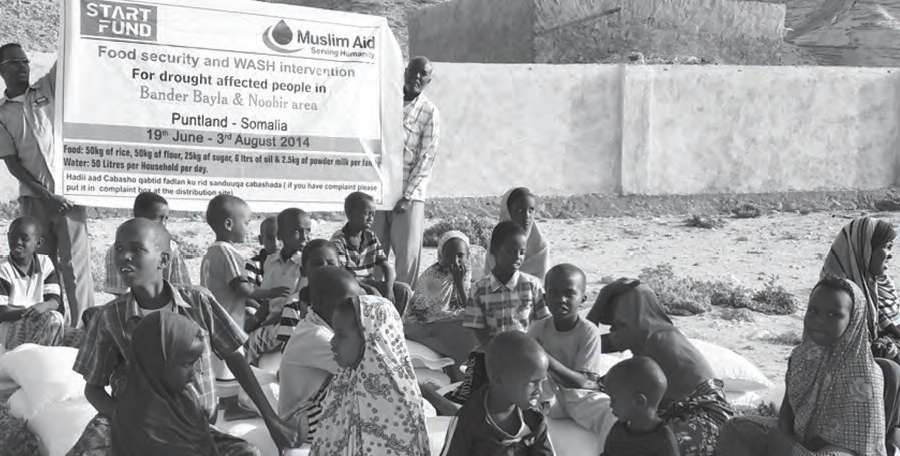
| Name | Start Network | ||
| Address | Start Network, c/o Save the Children, 1 St John’s Lane, London EC1M 4AR, UK | ||
| info@spring-nutrition.org | |||
| Web site | http://www.start-network.org/ | ||
| Year founded | 2013 | ||
| Director | Sean Lowrie | ||
| No. HQ staff | 12 | ||
| No. staff worldwide | 12 |
 Jeremy Shoham interviewed Tanuja Pandit from the Start network for this issue’s agency profile slot.
Jeremy Shoham interviewed Tanuja Pandit from the Start network for this issue’s agency profile slot.
More and more people are affected by humanitarian crises around the world and these are increasing in complexity and frequency. This trend is expected to escalate as increased population density, climate change and globalisation collide in a turbulent second decade of the 21st century. People in humanitarian crises need more appropriate assistance than they currently receive. Faced with an inevitable escalation in demand for its services, the international humanitarian aid sector must confront a ‘perfect storm’: increasing and changing humanitarian need, complex systemic bureaucracy, decreasing humanitarian space, and a reactive business model that prevents evolution.
What is the Start Network?
The Start Network is a collaboration of 24 humanitarian non-governmental organisations (NGOs) set up to connect people in crisis to the best possible solutions. Research estimates that a majority of human losses occur in small scale humanitarian crises. In larger scale ‘intensive risk’ crises, the international system is usually triggered, although the appropriateness of the assistance provided is often in question. These questions revolve around:
- the extent to which the affected population can influence assistance being provided to them;
- the degree to which humanitarian aid can adapt to any specific crisis context;
- the extent to which humanitarian aid organisations can take advantage of new innovations to improve their response;
- whether international organisations undermine local crisis responders; and,
- whether, and to what extent, incumbent aid organisations can work with others to increase the scale of assistance being provided.
For example, as the numbers of refugees and displaced people continues to escalate in the Middle East, with no apparent end in sight, a substantially different scale and set of humanitarian needs is emerging. The question is whether the current humanitarian system is set up to tackle them. People need humanitarian assistance that is appropriate for their needs. That could mean assistance that reaches people in small ‘below the radar’ events; rapid assistance that is provided immediately after a crisis onset; or assistance that is provided in the early stages of a slow onset crisis. Ideally, this assistance will be flexible and could include information, cash, goods or services, as well as being anticipatory and responding to shifts in risk before crises emerge.
The Start Network works to shift the centre of humanitarian gravity so decision making and leadership take place at the front line and affected people are empowered to improve their lives. The principles of decentralisation and diversification set out in its Declaration of Intent1 speak to ensuring local actor involvement and representation rather than primarily focussing on or serving the needs of international agencies. In making this mandate reality, Start delivers programmes and brokers collaborations working through three pillars: Start Fund, Start Build and Start Labs.
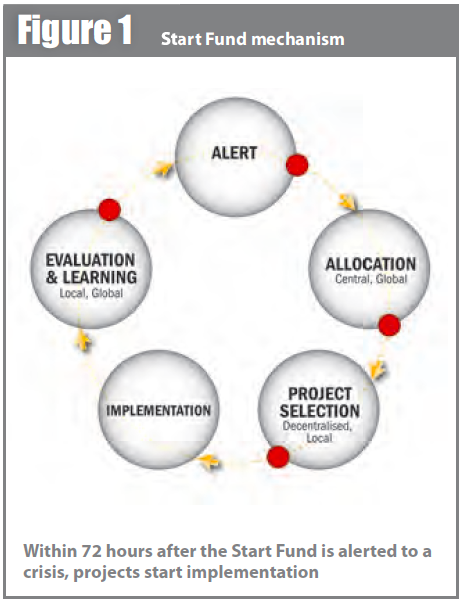
Start Fund: Development of new business models and financial mechanisms for crisis response by NGOs
The Start Fund, a rapid response global pooled fund, is currently backed by three sovereign governments (DFID UK, Irish Aid and the Dutch Government). The Fund has been alerted for 36 emergencies, allocating £6m of funds since April 2014, and has signed agreements for £34m in funding over the next three years. Launched on 1 April 2014, the Start Fund is a collaboration to create a multi-donor pooled fund for global humanitarian action. The Fund allows fast response to both rapid onset emergencies and spikes in chronic crises where agencies on the ground need to react quickly. It can be activated within 72 hours and covers the needs of small scale emergencies for the first 45 days. In the first 12 months, the Start Fund reached over 1.2 million people. Tanuja noted that most Start Fund responses are multi-sector and some will include a nutrition element. The recent Start Fund report lists the number of beneficiaries by sector over the 12 months to March 2015.2While water, sanitation and hygiene (WASH) and health were undoubtedly the biggest sectors, nutrition sensitive programming was estimated to have reached 57,000 beneficiaries.
The Network’s vision for the Start Fund is a multi-donor pooled fund of £100m a year. The Start Fund is also developing new financial models for humanitarian response to ensure that crisis funding is not just an after-the-fact event but that it can anticipate and respond?effectively?based?on?forecasted?events. Currently under development are a bridging loan facility for early response and a parametric drought insurance mechanism.3
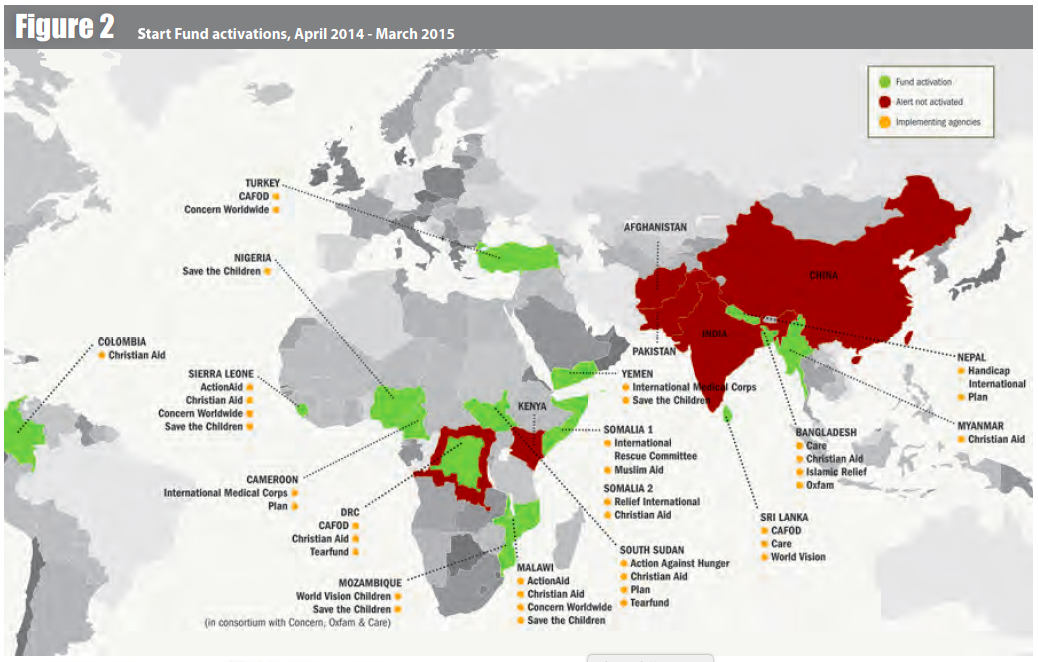
Start Build: Strengthening civil society capacity through decentralised, modern and effective capacity building initiatives.
The humanitarian capacity gap (i.e. the gap between the capacity that currently exists in the humanitarian system and the capacity that is required) is ever widening and requires new investment, new relationships, new actors and new partnerships, as well as new capacities, skills and behaviours to help connect people in crisis with the best possible solutions. The Start Build stream is concerned with this endeavour and embraces a philosophy of subsidiarity where humanitarian action is as local as possible and as international as necessary. This stream has approval for £26m of investments from DFID, in a portfolio of 13 collaborative capacity building programmes, each one a mini consortium consisting of members and non-members and dealing with common capacity challenges.
Start Build has developed a portfolio of capacity strengthening projects where local capacity is prioritised and decision making takes place as close to the front line as possible. Focus on mitigation, preparedness and response capacity will help ensure that outcomes are more sustainable. This portfolio of work aims to support international NGOs evolve from the delivery of material assistance towards a role that is as much about response as it is about brokering, facilitating and supporting local organisations.
These collaboratively designed and managed projects are part of the DFID initiated capacity building project (DEPP) which is a groundbreaking three year programme that will invest £40 m in disaster and emergency preparedness. It is intended to significantly improve the quality and speed of humanitarian response in countries at risk of natural disaster or conflict related humanitarian emergencies. It will do this by increasing and strengthening the capacity of the humanitarian system at all levels, although support will be weighted towards training and development for local humanitarian workers at national level. National preparedness systems, particularly around communication, will also be strengthened.
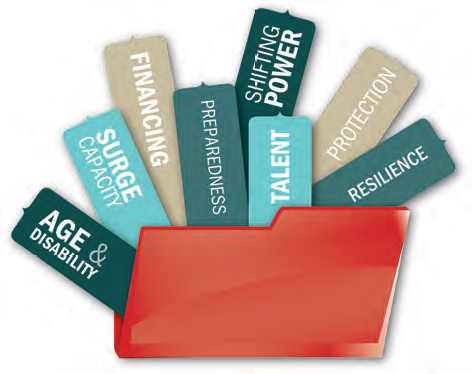 Start Labs: Evidence, enquiry, learning and experimentation, creating platforms for partnerships and learning.
Start Labs: Evidence, enquiry, learning and experimentation, creating platforms for partnerships and learning.
Start Labs activities strive to be a catalyst for innovation, i.e. impact investing. The premise is that the funding environment created by existing donor mechanisms acts as a buffer against competition and provides obstacles to collaboration and to change within the humanitarian community. The financing mechanisms being developed and prototyped by Start are only part of the story. Start will also seek to seed frontline innovations around the world through the Start Beta stream that sits in this space. Beta is about identifying, funding and promoting the small scale innovators who can make a difference to humanitarian response. Funding for this work will come from non-traditional donors, either private philanthropists or foundations interested in promoting innovation.
Funding, membership & governance
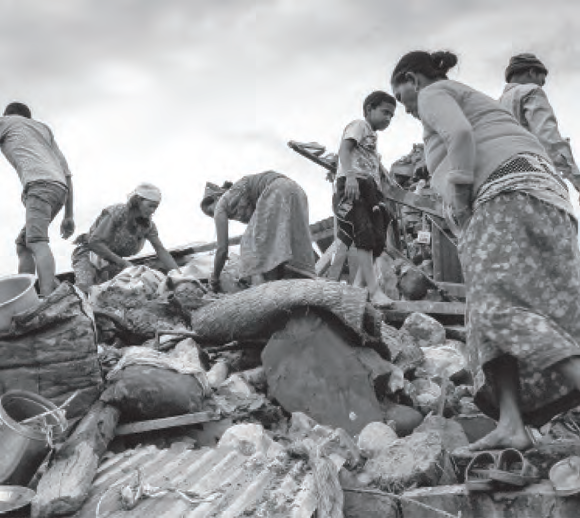 The Start Network is currently funded by three bilateral donors (DFID UK, Irish Aid and the Dutch Government), annual membership fees and occasional project grants from foundations. The plan is to scale up Fund, Build and Labs substantially over the next three years. The Network, which is currently located in the Save the Children UK’s London offices, will soon spin off as an independent legal entity and further internationalise. This May, five new western and non-western NGOs joined the Network. The Start Network is planning to further expand, with a new membership window opening in Autumn each year. Criteria for new member acceptance include commitment to the Core Humanitarian Standards, financial sustainability and good governance.
The Start Network is currently funded by three bilateral donors (DFID UK, Irish Aid and the Dutch Government), annual membership fees and occasional project grants from foundations. The plan is to scale up Fund, Build and Labs substantially over the next three years. The Network, which is currently located in the Save the Children UK’s London offices, will soon spin off as an independent legal entity and further internationalise. This May, five new western and non-western NGOs joined the Network. The Start Network is planning to further expand, with a new membership window opening in Autumn each year. Criteria for new member acceptance include commitment to the Core Humanitarian Standards, financial sustainability and good governance.
Members’ participation in the Network is in addition to their ‘day jobs’. Even so,they devote significant time to the development and scaling up of the Network by participating on the Board, in the Members’ Assembly and on various governance committees for Start Fund. The Start Network is governed by a Board of Trustees made up of member and independent representatives and an Assembly principally made up of Humanitarian Directors. The Board is scheduled to meet six times a year, is responsible for the governance and strategic direction of the Network, and makes recommendations to the Assembly for ratification. The Assembly currently meets quarterly to discuss Network-wide matters.
The Start Network aims to create structures and agreements that enable the Network to fulfil its commitment of connecting people in crisis to the best possible solutions. Start Fund responses are underpinned by a Consortium Agreement and a Start Fund agreement so that the Fund can respond within 72 hours of being alerted to a crisis. There are light governance structures for the Committees that handle these responses and these are continuously streamlined and improved to reduce transaction costs.
The Start Team
The Start Team is a lean secretariat of around 12 staff with an ambitious vision and a desire to work entrepreneurially to effect change and to establish and grow the Network. This team of independent brokers is moving on multiple fronts and is helping the Network members to navigate opportunities, work collaboratively and deliver insights to the sector. The Start Network believes this way of working with its members will change a humanitarian system that is currently not fit for purpose. There are also a number of specialist advisors who support this work on the development and prototyping of financing solutions and advocacy work.
The Start Network’s vision for the future is for a diverse and collaborative humanitarian sector in which international and local agencies work together in managing crises, continually seeking ways to fully engage beneficiaries in the response. The ENN fully concur with the Start Network’s vision and wish them well in their endeavours.
1http://www.start-network.org/why
2Please see more information in The Start Fund Report, available here: http://www.start-network.org/wp-content/uploads/2015/05/Start-Fund-Annual-Report-2015.pdf
3Parametric insurance is similar to normal insurance, in that in return for a yearly premium (calculated by expected frequency and severity of an event) a pay-out is received if the event takes place. However a key difference is that instead of making payments on the basis of losses measured after an event, it makes the payments automatically based on pre-agreed triggers. For more information, see: http://www.start-network.org/news/start-trial-new-parametric-insurance-model-hif-funding


